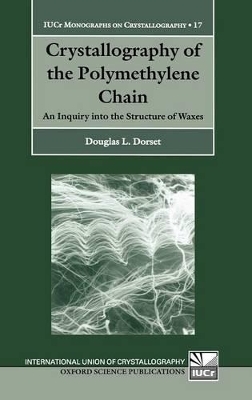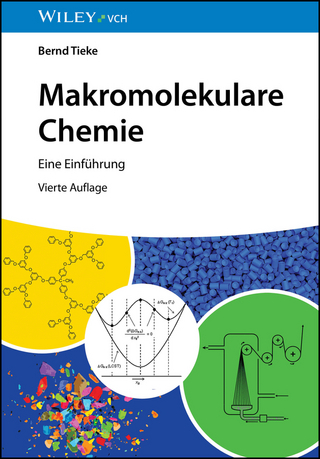
Crystallography of the Polymethylene Chain
An Inquiry into the Structure of Waxes
Seiten
2004
Oxford University Press (Verlag)
978-0-19-852908-8 (ISBN)
Oxford University Press (Verlag)
978-0-19-852908-8 (ISBN)
How do mixtures of differently sized and shaped molecules form the plastic solids known as waxes? Firstly, this book considers the characteristic crystalline assemblies of wax ingredients; secondly, it looks at assemblies of two separate components; and finally, it shows how plausible molecular models for several types of wax can be constructed.
By considering the solid state packing of linear chain wax components, this book aims at understanding three things: firstly, which modifications of molecular components are allowed for maintaining stable solid solutions; secondly, what happens when stability conditions are traversed and fractionation begins and thirdly, the structure of fractionated arrays. The co-compatibility of molecular ingredients is considered in terms of their shapes and relative sizes, following an approach originally proposed by Kitaigorodskii. As demonstrated profusely by the crystal structures of pure component types (e. g. alkanes, fatty alcohols, fatty acids, long chain esters, cholesteryl esters) and insertion of functional groups (e. g. chain branches, unsaturation, heteroatoms), characteristic molecular packing arrays provide important geometric information for understanding the co-packing of different molecules in mixtures. Single crystal and spectroscopic data from polydisperse arrays can then be evaluated to arrive at plausible structures of solid solutions and fractionated systems. The resultant structures are not only relevant to the understanding of so-called waxes but also include certain classes of polymers. The ramifications of this work extend into any solid state array of polymethylene chains, including lipid foodstuffs.
By considering the solid state packing of linear chain wax components, this book aims at understanding three things: firstly, which modifications of molecular components are allowed for maintaining stable solid solutions; secondly, what happens when stability conditions are traversed and fractionation begins and thirdly, the structure of fractionated arrays. The co-compatibility of molecular ingredients is considered in terms of their shapes and relative sizes, following an approach originally proposed by Kitaigorodskii. As demonstrated profusely by the crystal structures of pure component types (e. g. alkanes, fatty alcohols, fatty acids, long chain esters, cholesteryl esters) and insertion of functional groups (e. g. chain branches, unsaturation, heteroatoms), characteristic molecular packing arrays provide important geometric information for understanding the co-packing of different molecules in mixtures. Single crystal and spectroscopic data from polydisperse arrays can then be evaluated to arrive at plausible structures of solid solutions and fractionated systems. The resultant structures are not only relevant to the understanding of so-called waxes but also include certain classes of polymers. The ramifications of this work extend into any solid state array of polymethylene chains, including lipid foodstuffs.
Douglas L. Dorset is Senior Research Associate at ExxonMobil Research and Engineering Company in Annandale, New Jersey, USA.
1. Polydispersity of the paraffin chain: statement of the problem ; 2. Layer packing of polymethylene chains ; 3. Crystal structures and phase transitions of the paraffins ; 4. Thermotropic disorder in n-paraffin crystals ; 5. Binary and multicomponent solids of n-paraffins ; 6. Some functional substitutions in n-paraffins ; 7. Lipid alcohols ; 8. The fatty acids ; 9. Linear fatty acid esters ; 10. The cholesteryl esters ; 11. From waxes to polymers: the crystallography of polydisperse arrays
| Erscheint lt. Verlag | 9.12.2004 |
|---|---|
| Reihe/Serie | International Union of Crystallography Monographs on Crystallography ; 17 |
| Zusatzinfo | numerous line figures and halftones |
| Verlagsort | Oxford |
| Sprache | englisch |
| Maße | 163 x 242 mm |
| Gewicht | 569 g |
| Themenwelt | Naturwissenschaften ► Chemie ► Organische Chemie |
| Naturwissenschaften ► Chemie ► Physikalische Chemie | |
| Naturwissenschaften ► Geowissenschaften ► Mineralogie / Paläontologie | |
| Naturwissenschaften ► Physik / Astronomie ► Angewandte Physik | |
| ISBN-10 | 0-19-852908-2 / 0198529082 |
| ISBN-13 | 978-0-19-852908-8 / 9780198529088 |
| Zustand | Neuware |
| Haben Sie eine Frage zum Produkt? |
Mehr entdecken
aus dem Bereich
aus dem Bereich


